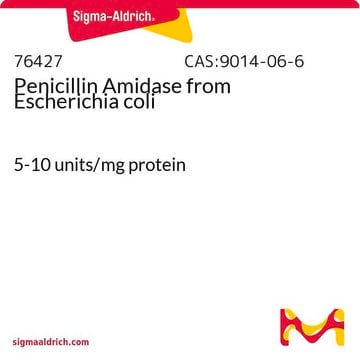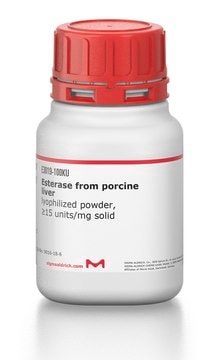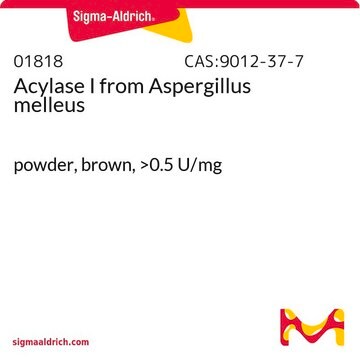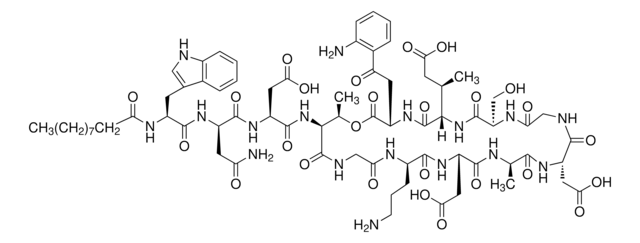A6691
Amidase from Pseudomonas aeruginosa
recombinant, expressed in E. coli, buffered aqueous glycerol solution, hydroxamate transferase ≥200 units/mg protein (biuret)
Synonym(s):
Acrylamide Amidohydrolase, Acylase
About This Item
Recommended Products
recombinant
expressed in E. coli
Quality Level
form
buffered aqueous glycerol solution
hydroxamate transferase activity
≥200 units/mg protein (biuret)
concentration
14 mg/mL
UniProt accession no.
storage temp.
−20°C
Gene Information
Pseudomonas aeruginosa PAO1 ... PA4163(880181)
Looking for similar products? Visit Product Comparison Guide
Application
Biochem/physiol Actions
Unit Definition
Physical form
Signal Word
Danger
Hazard Statements
Precautionary Statements
Hazard Classifications
Resp. Sens. 1
Storage Class Code
12 - Non Combustible Liquids
WGK
WGK 1
Flash Point(F)
Not applicable
Flash Point(C)
Not applicable
Personal Protective Equipment
Certificates of Analysis (COA)
Search for Certificates of Analysis (COA) by entering the products Lot/Batch Number. Lot and Batch Numbers can be found on a product’s label following the words ‘Lot’ or ‘Batch’.
Already Own This Product?
Find documentation for the products that you have recently purchased in the Document Library.
Customers Also Viewed
Our team of scientists has experience in all areas of research including Life Science, Material Science, Chemical Synthesis, Chromatography, Analytical and many others.
Contact Technical Service










